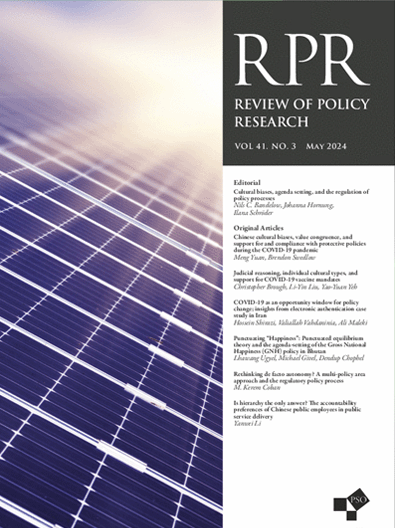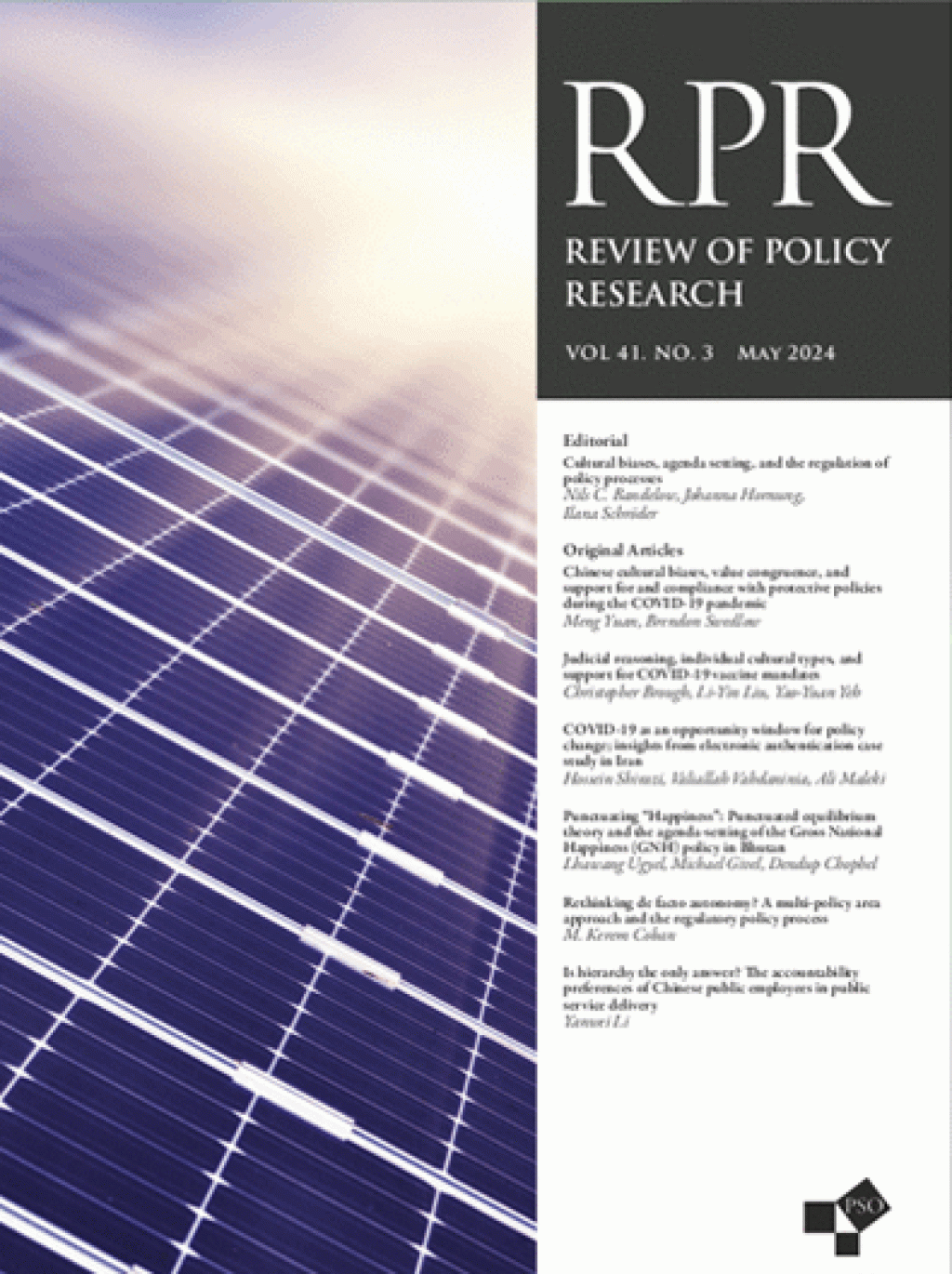Investigating the mechanisms linking revenue recycling to increased political acceptability of carbon pricing: The case study of the Irish carbon tax reform
Author: Dániel Muth
In: Review of Policy Research – 11 June 2024
DOI: https://doi.org/10.1111/ropr.12625
Abstract
This paper analyzes the causal relationship between the carbon tax’s revenue recycling measures and political acceptability. The Irish carbon tax reform of 2019 forms the basis of the study. The findings are based on deductive content analysis and semi-structured, elite interviews with key politicians, climate policy advisors, and other influential figures involved in the policy-making process. Analyzing the extensive Irish revenue recycling scheme, encompassing compensatory measures and various forms of climate spending, provides researchers with the chance to track distinctive causal mechanisms over the course of a politically intense period, leading up to general elections. The results show that relief measures were crucial to alleviate concerns about the negative distributional impact of the policy, which was fiercely attacked by some opposition parties. Additionally, climate spending increased political acceptance by offering low-carbon alternatives to consumers, even though the policy was initially construed as punitive measure, especially in regions and sectors where switching to low-carbon options, public transport, or less carbon intense heating, were challenging or even impossible. A unique finding of the study is that revenue recycling facilitates the emergence of cross-party agreement among ideologically distant parties. Another crucial contribution of this study is the detailed comparison, from the perspective of political acceptability, of two alternative social compensation models, the fee and dividend model, and the integration of targeted social cushioning and climate spending (hypothecation).




